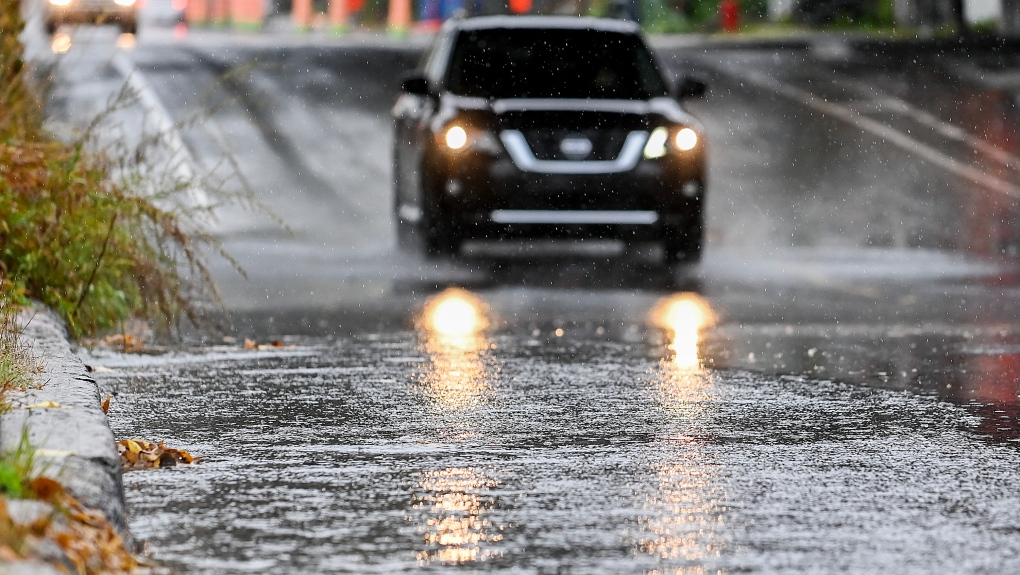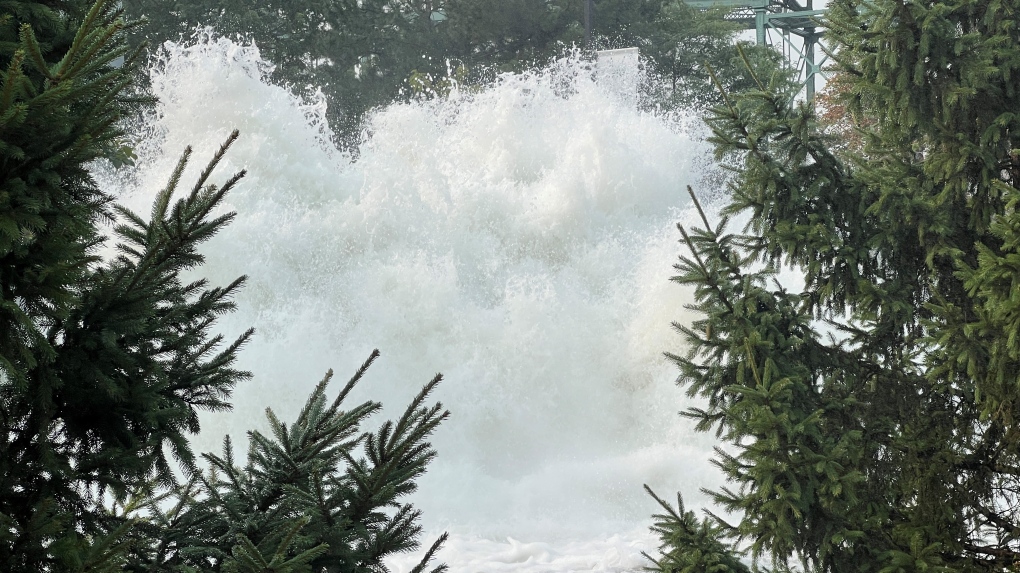2024 broke records across the Quebec weather spectrum
In some ways, 2024 was the perfect storm.
“Stick a thermometer into the province that says well done,” said Environment Canada climatologist David Phillips.
The year starting with downed trees and power loss in Quebec, but it also saw extreme temperatures.
“This past fall was the warmest on record. The summer was the warmest on record and I'm talking about 77 years of record,” Phillips said, adding that “spring came out to be about the third warmest in 77 years, so still near the top.”
The month of April also brought a major highlight in the heavens with the total solar eclipse. The once-in-a-lifetime occurrence was visible across a narrow band covering North America and Montrealers had a front-row seat.
“Who would have thought that at the beginning of April you could ever have clear unlimited visibility? I mean it's usually a cloudy month,” Phillips explained.
The summer followed with several days of scorching weather, including 13 days of temperatures above 30 degrees Celsius.
However, the region couldn't possibly have prepared for the wet weather that would also come.
“Hurricane Beryl came up there in about July the 10th and dropped about 100 millimetres of rain in the city of Montreal and it inundated roads, and the Decarie expressway was like a canal; 12,000 people lost power and a month later then you had hurricane Debby.”
 Pooling water is shown on a street during heavy rain in Montreal, Saturday, Oct. 7, 2023. Environment Canada has issued a rainfall warning for the province. (Graham Hughes / The Canadian Press)
Pooling water is shown on a street during heavy rain in Montreal, Saturday, Oct. 7, 2023. Environment Canada has issued a rainfall warning for the province. (Graham Hughes / The Canadian Press)
According to Environment Canada, the remnants of tropical storm Debby brought Montreal roughly 155 millimetres of rain, making the downpour the wettest moment in the city's history.
It also became the most expensive weather incident in the history of Quebec.
Weeks later, a water main broke flooding streets near downtown - including the CTV News Montreal, RDS and Noovo Info studios.
 Water spews from a major water main break in Montreal. (Daniel J. Rowe/CTV News)
Water spews from a major water main break in Montreal. (Daniel J. Rowe/CTV News)
After a holiday season of above-seasonal temperatures, freezing rain and smog warnings, it's a wonder what 2025 has in store.
“I would hope it's not as stormy and that way maybe hurricanes will go back to being more of an east coast kind of thing than a mid-continent kind of thing,” said Phillips.
As January temperatures drop to the usual seasonal range, Environment Canada hopes Montreal will see a more normal climate in 2025.
CTVNews.ca Top Stories

Justin Trudeau to step down as PM following Liberal leadership race
Prime Minister Justin Trudeau is stepping down as Liberal leader, and is proroguing Parliament as the Liberal Party of Canada embarks on the journey to replace him.
Trudeau resignation: recap key moments, analysis, reaction as it happened
Prime Minister Justin Trudeau has stepped down as Liberal leader. Here's a recap of key moments, analysis, and reaction as it happened.
Justin Trudeau steps down as Liberal leader. Who are the top contenders to replace him?
With Prime Minister Justin Trudeau's resignation as Liberal party leader, several well-known political faces may be waiting in the wings for their opportunity to take his place.
'Together, what a great nation it would be': Donald Trump, Elon Musk react to Justin Trudeau's resignation
Amid news of Prime Minister Justin Trudeau's resignation as leader of the Liberal party on Monday morning, reactions from prominent figures began piling in.
Trudeau says Parliament is 'prorogued' until March. What does that mean?
In his resignation speech on Monday, Prime Minister Justin Trudeau announced that Parliament would be prorogued until March, which will give the Liberal party time to find a new leader ahead of an expected confidence vote and early election.
Justin Trudeau is resigning, what will be his legacy? A look back at key political eras
In a seismic political move, Justin Trudeau has announced his intention to step down as leader of the Liberal Party of Canada and prime minister, once his successor is named. This decision comes after more than nine years in the country's top job and nearly 12 years at the helm of his party.
Justin Trudeau resignation: Here's what he said in Ottawa today
Prime Minister Justin Trudeau delivered a speech about his political future Monday morning outside Rideau Cottage in Ottawa. Here's the message he delivered to Canadians.
Alberta government signs new oil and gas agreement with Enbridge
The Alberta government has signed an agreement with Enbridge that Premier Danielle Smith says will increase exports of the province's heavy oil to the United States.
Trudeau leaves mixed global legacy as he exits during turbulent time, analysts say
Prime Minister Justin Trudeau will leave the world stage with a legacy of promoting feminist causes and focusing on Asia, along with criticism that Canada's actions fell short of the government's rhetoric.






























